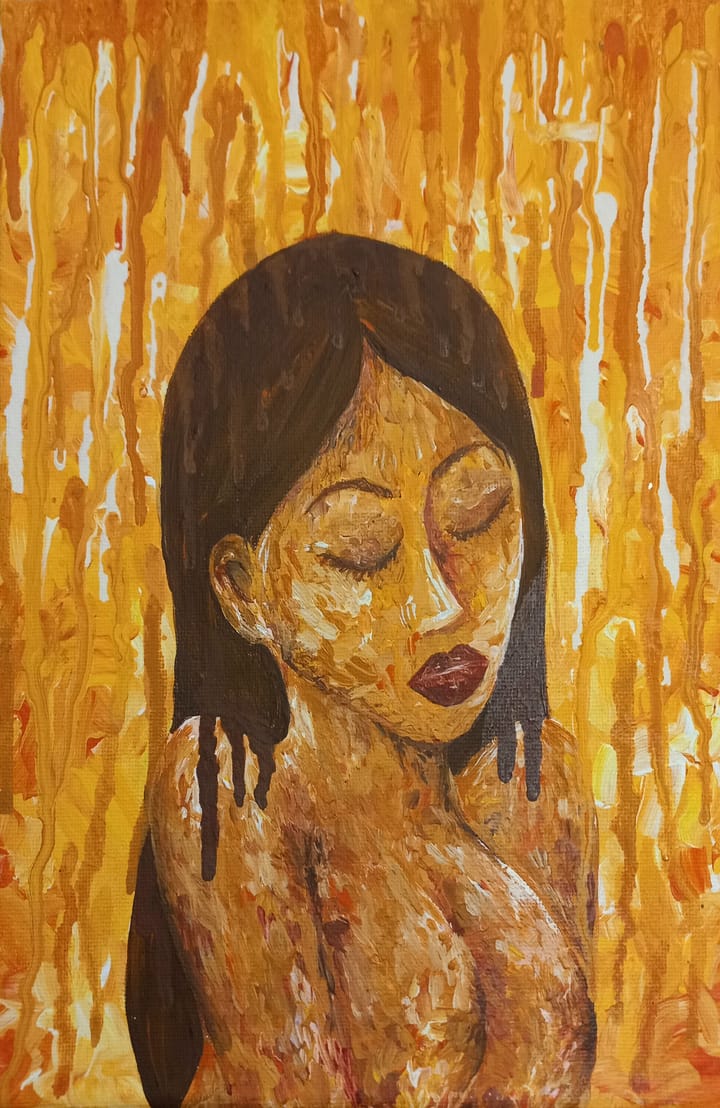A Covid Reflection: Mourning and Community
Tiia McKinney ’25 shares a story of mourning and grief, chronicling two years of Covid for her community in The Bahamas, punctuated by the deaths of loved ones.


Tall cruise ships in the blue harbor grew smaller through my car window. Pedestrians passed by my car, walking on the unmarked gravel sidewalks. Hours before, the tourists in their hats and beach attire had just stepped onto a new land from their floating rooms. At this point, nobody paired their outfits with ostentatious blue masks. This was before campuses closed down. Before I was forced inside of my home during quarantine. At this point, there was no Covid to fear, and I remember suggesting to my mom that soon these same harbors would be closed and vacant. I spent a year at home, white screen after white screen, attending classes that made my head hurt day after day. I spent the whole time in my room feeling like my walls were closing in on me. Back then, two years ago, I imagined that by my first semester in college, the virus would be somewhat of a memory. Yet here I am, still dealing with a virus that continues to take from me and my community.
During the first few months of Covid, I often sat on my couch watching news announcements. The Bahamian prime minister stood next to the minister of health on Facebook Live, urging citizens to stay indoors. Even though I had a beach directly in front of my house, after 5 p.m., I could not leave my yard. My sister and I sat on the wall bordering my house, our legs dangling off into the grass while we stared at the sunset. Police officers drove by with Covid ambassador symbols on their doors. Sometimes, my sister and I walked down the hill through the brush. We dodged police cars, jogging nervously down the discreet path to the water. Whenever we returned in the evening, the radio would be playing throughout the house with Covid announcements. I half-listened to the prime minister as he announced that all stores except for gas stations and food stores would be shut down. Then, I heard that families could only shop once a week, in alphabetical order. I felt like an over-supervised preschool student. Then came the Covid death counts. The death numbers went from two to the tens to the hundreds. Still, the virus felt far away from me. I had become desensitized to the growing digits, clinging on to the comfort that the virus had not fully taken over my island yet. It soon came too close to deny, however. I heard about cases and deaths in settlements 30 minutes away from my own, then 10 minutes away. Then I began hearing about deaths in my own settlement.
Time lost meaning, and the days slowly faded into one another. But I remember the spring that marked a year since I had been sent home. Finally came my plane ride back to campus, a whole year after the start of the pandemic, but still Covid was not over. When I left The Bahamas for school, I preoccupied myself with aspects of student life like mask-wearing and seeing my friends after being away for so long. But life still continued on at home. People at home delivered news to me over social media or on WhatsApp. I was worrying about so many people in so many places: in New Jersey, at my school, and how things were like back at home.
In casual WhatsApp calls, I heard familiar names of people who passed away. Then, I heard that my neighbor had passed. Then came both my aunt and my uncle, all within the span of a month. These calls were longer, often more drawn out. In between questions about school, we exchanged condolences. Then, another family friend passed. I was still away at school, now hitting midterms. It was almost two years after the start of Covid when I heard this news. The last time I saw her, she delivered food to my door with a smile during Christmas. Then came a rush of memories of long gone family members who I hadn’t seen in years, before hearing that they passed. I lay in bed after talking to my mom on a phone call. I didn’t have the words to tell her that everything would be okay, so instead she tried to comfort me in my silence. My head sank into my pillow while I stared at my ceiling. I recalled everyone who, just like her, I didn’t have the chance to say goodbye to. I tried to carry on as if everything was back to normal, but nothing was the same. I don’t know how to return to a normal world. I don’t even know what a normal world would look like when I lose family members every day.





Comments ()